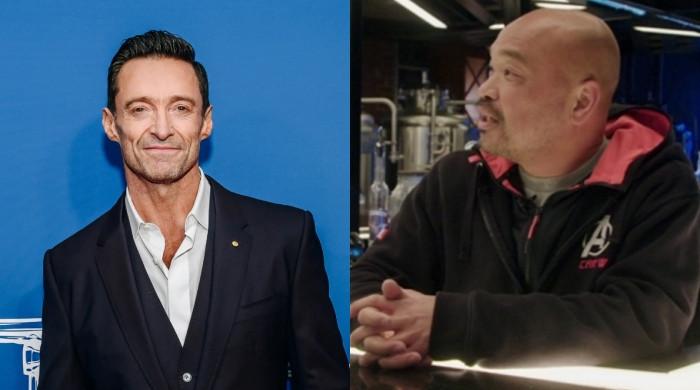
Millions of dollars in sales of North Korean false eyelashes – sold in beauty shops around the world as “Made in China” – helped fuel an export recovery in the secretive country last year.
The processing and packaging of North Korea’s false eyelashes – openly carried out in neighboring China, the country’s largest trading partner – provides Kim Jong Un’s regime with a way to circumvent international sanctions and provides a vital source of foreign currency.
Reuters spoke to 20 people – 15 of them from the eyelash industry, as well as trade lawyers and North Korea economic experts – who described a system in which Chinese companies import semi-finished products from North Korea, which are then finished and packaged. As a Chinese.
The finished eyelashes are then exported to markets including the West, Japan and South Korea, according to eight people at companies directly involved in the trade.
Some spoke on condition that they only be identified by their last names because they were not authorized to speak to the media.
North Korea has long been a major exporter of hair care products such as wigs and false eyelashes, which allow people to avoid the hassle of mascara and achieve a striking look. But North Korea’s strict border closures during the COVID-19 pandemic have led to a sharp decline in exports.
Heavy trade in North Korean-made eyelashes through China resumed in 2023, according to customs documents and four industry sources.
Chinese customs data shows North Korea’s exports to China more than doubled after the border reopened in 2023. China is the destination for almost all of North Korea’s declared export products.
Last year, wigs and eyelashes accounted for nearly 60% of North Korea’s declared exports to China. In 2023, North Korea exported a total of 1,680 tons of false eyelashes, beards and wigs to China, worth approximately US$167 million.
In 2019, when prices were lower, it exported 1,829 tons worth just $31.1 million.
The U.S. State Department and international experts estimate that North Korea robs its citizens of up to 90 percent of their foreign income, many of whom live in poverty. Reuters could not determine how much of the proceeds from eyelash sales flow back to Kim Jong Un’s government, or how it is used.
“We have to assume… that the millions of dollars that North Korea earns every month from the eyelash trade are being used by the Kim Jong Un regime,” said Shin Tong-chan, a sanctions lawyer in Seoul. His view was confirmed by two other international trade experts, but none provided concrete evidence.
North Korea did not respond to requests for comment for this article from its U.N. missions in New York and Geneva, its embassy in Beijing and its consulate in the Chinese border city of Dandong.
A spokesperson for the Chinese Ministry of Foreign Affairs said that Beijing and Pyongyang “are friendly neighbors” and that “the normal cooperation between the two countries that is legal and compliant should not be exaggerated.”
UN and US sanctions
Since 2006, the U.N. Security Council has sought to halt Pyongyang’s nuclear weapons program through nearly a dozen sanctions resolutions that limit its ability to trade products such as coal, textiles and oil. It also imposed tight restrictions on North Koreans working abroad.
Sanctions adopted by the Security Council should be implemented by UN member states using local legislation – all of which are legally obliged to enforce them.
But three sanctions experts told Reuters there is currently no direct ban on hair products, so the trade in false eyelashes from North Korea does not necessarily violate international law.
Reuters submitted its findings to China’s Ministry of Foreign Affairs, which said it had “no knowledge of the situation described” but that any alleged breach of U.N. sanctions was “completely unfounded.”
Japan’s Foreign Ministry did not comment on the Reuters findings but said Tokyo, which bans trade with Pyongyang, would continue to consider the “most effective approach” against North Korea. The EU diplomacy did not respond to a request for comment on the sale of North Korean-made eyelashes within its jurisdiction.
Since 2008, the United States has separately expanded measures against North Korea to include sanctions on any company that stocks or sells its products to fund Kim’s regime: a restriction that also applies to non-U.S. companies using U.S. dollars.
But two international sanctions lawyers said there are practical and political limits on Washington’s ability to unilaterally impose such sanctions on entities such as foreign companies that have minimal exposure to the U.S. financial system and do not primarily sell to U.S. customers .
A Treasury Department spokesman said the United States “aggressively enforces its broad North Korea sanctions authority targeting U.S. and foreign companies” and will “continue to aggressively target any revenue-generating efforts by Pyongyang.”
The Treasury Department also pointed to a nearly $1 million settlement reached in 2019 with elf Cosmetics, accusing the U.S. company of unintentionally selling false eyelashes containing North Korean materials.
elf’s parent company said in a 2019 filing that it discovered the use of North Korean materials at two suppliers during a “routine self-management audit” and quickly resolved the issue, deeming it “not material.” .
The company has since stopped selling false eyelashes and reiterated its commitment to manufacturing its products legally and responsibly in a statement to Reuters about the incident.
Reuters was unable to determine whether any Western companies are currently involved in the North Korean eyelash trade.
China’s “Lash Capital of the World”
Industry insiders say Pingdu, a small town in eastern China known as the “eyelash capital of the world,” is a key node in North Korea’s supply chain.
Wang Tingting’s family owns the company, which exports to the United States, Brazil and Russia.
In an interview at her factory, Wang said North Korean goods helped Monchery grow from a small family workshop. Corporate records show the company was founded in 2015.
“The quality of North Korean products is much better,” said Wang, who said she was not aware of any sanctions-related issues with using North Korean false eyelashes. She declined to name her international clients.
Others in Pingdu say they are aware of the role sanctions play in complex distribution chains.
“Without these sanctions, (North Korea) would have no need to export through China,” said Gao, the owner of Yumuhui eyelash company.
Choe Ho Chol is a representative of a North Korean factory that has partnered with Chinese partners to form a joint venture called the South Korea-China Joint Processing and Trading Company. He said the North Korean company shipped semi-finished eyelashes to China and then sold them to markets including the United States. , Europe, Japan and South Korea.
He declined to identify the two companies involved in the collaboration or their clients. He could not be reached for comment on the impact of the sanctions.
Income in cash-strapped countries
Chinese manufacturers began working with North Korean eyelash factories in the early 2000s, according to three Chinese factory managers. They say they value the country’s low labor cost and high-quality lashes.
According to 2023 estimates released by Chinese eyelash box manufacturer Kali on its website, about 80% of eyelash factories in Pingdu purchase or process false eyelash raw materials and semi-finished products from North Korea.
The town of Pingdu, with a population of about 1.2 million, accounts for 70% of global production of false eyelashes, which are usually made from synthetic fibers but may also be made from mink or human hair, the city government said.
Asia Pacific International Network Technology, a trading company based in the Chinese border city of Hunchun, advertises services at three North Korean eyelash processing factories on its website, with pictures of workers arranging hair and pasting it onto paper.
An unnamed company employee reached by phone declined to comment.
Seoul businessman Johny Lee imported products such as chicken foot-shaped eyelashes for eyelash extensions from Dandong to South Korea.
Lee said the eyelashes were manufactured by North Koreans, packaged in China and then sold locally or exported to Asian countries such as Japan. Lee is chairman of a trade group in Seoul that includes eyelash extension technicians from the West and South Korea.
Asked about the legal risks, Li, who started sourcing eyelashes from China a decade ago, said he would not sell “complex technologies such as semiconductors.” North Korean workers “are trying to make a living there,” he said.
Korean law stipulates that if the production of imported goods involves two or more countries, the place where the product obtains its “basic characteristics” will be considered the country of origin.
Reuters described to South Korean certified customs lawyer Shin Min-ho how eyelashes made by North Korean workers are packaged and finished in China. He said North Korea might be considered their country of origin because it gave the raw materials “essential characteristics”.
South Korean Customs in Seoul said that “imports of North Korean products disguised as Chinese products may be punished,” but based solely on Reuters’ description of the supply chain between North Korea and China, it is “difficult to determine” the country of origin without investigating the issue. .
Good quality, cheap wages
Despite the high quality of eyelashes, North Korean labor is poorly paid. Four Chinese factory owners and managers said wages in North Korea could be one-tenth of those in China.
In addition, Wang, a manager at Pingdu manufacturer Co-Lash, said the company stopped its North Korean operations during the epidemic and its workers gave most of their income to the state. He provided no evidence.
Another Chinese manufacturer, PD Lush, pays workers at its factory in the North Korean border town of Rason an average monthly salary of 300 yuan ($42), whose work is sold around the world, said Wang, Pingdu’s manager.
When North Korea closed its borders during the pandemic, the country’s centrality to the industry became apparent.
Wang Tingting of Monsheery said that after North Korea closed its borders due to the epidemic in 2020, ships carrying small quantities of eyelashes for export were often stranded. “The demand on our side is very high,” she said.
She added that after the outbreak, supplies were still not at capacity and shipping delays were common.
Korean false eyelash brand Cinderella Amisolution usually purchases Korean semi-finished products from Chinese traders and then sells them to customers. But when North Korea sealed its borders, the samples sent by contractors were not made by North Koreans.
“I thought, ‘This isn’t going to work,'” said Chief Executive Choi Jee-won. “They’re completely different.”
(This story has not been edited by NDTV staff and is auto-generated from a syndicated feed.)
Follow us on Google news ,Twitter , and Join Whatsapp Group of thelocalreport.in
















